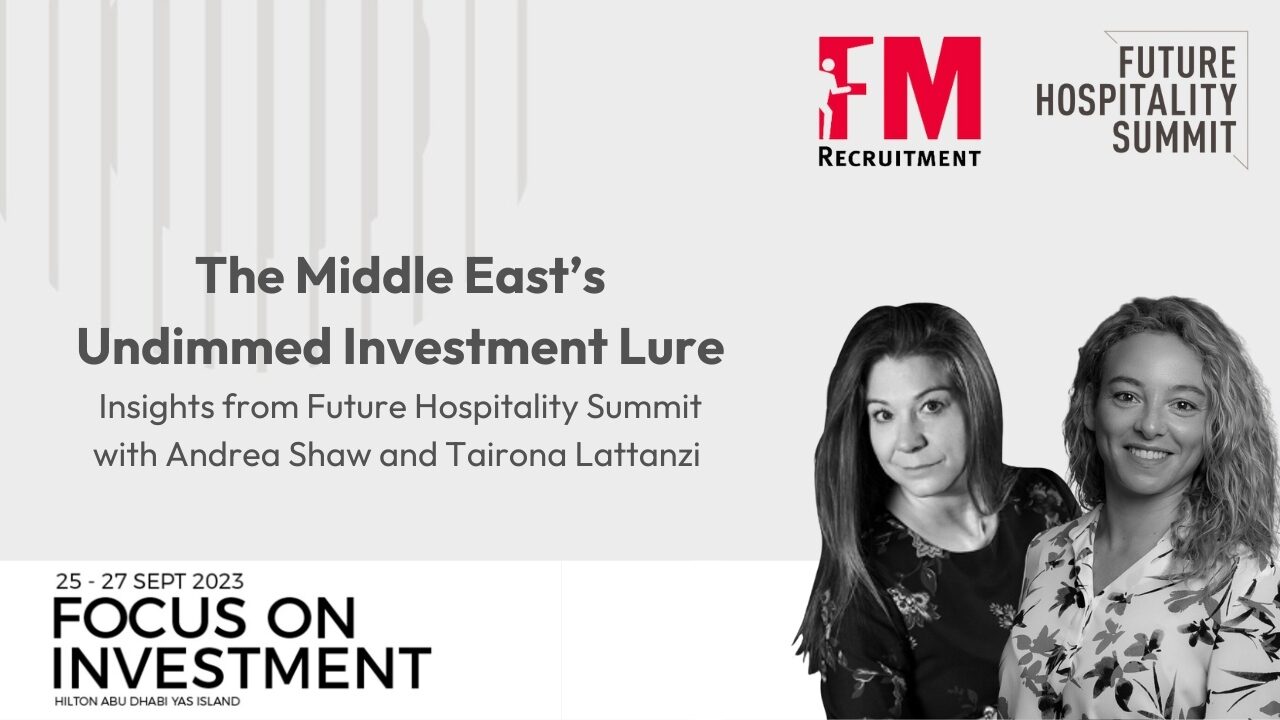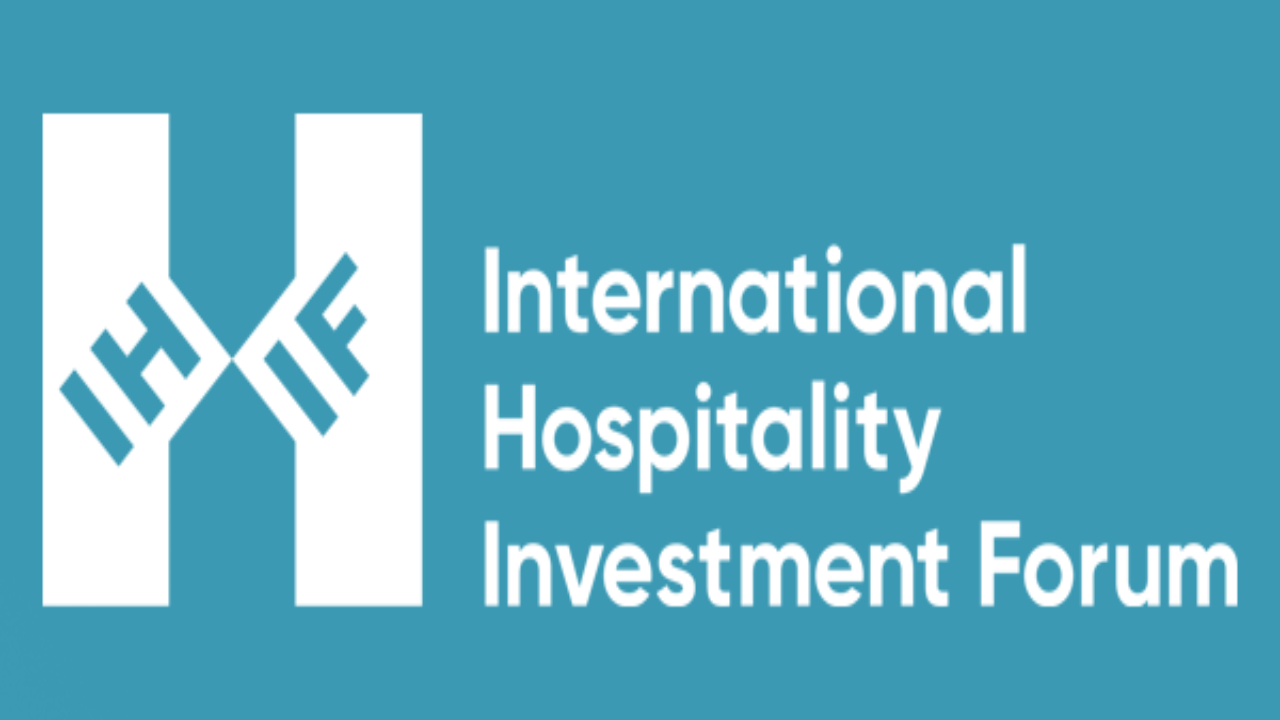Last week, Andrea Shaw and Tairona Lattanzi attended the Future Hospitality Summit (FHS) in Abu Dhabi, which attracted industry professionals from around the world to explore, discuss, and decipher the current status and forward trajectory of the hospitality sector in the Middle East. Here, Andrea shares her comprehensive insights and experiences from the summit, providing a nuanced look at the opportunities, challenges, and emergent trends in the industry.
Investment Landscape
Contrary to the whispers at the International Hotel Investment Forum (IHIF) earlier this year that suggested that investment opportunities in the Middle East were reaching a plateau, this event hinted at a far from exhausted investment landscape there. Saudi Arabia, Qatar, and Abu Dhabi have all accelerated their ambitions in recent years, but we found that this event had a considerable focus on Dubai and how it has astutely steered itself to hold substantial weight in the global hospitality industry, luring investors with its infrastructural marvels, technological advancements, and dynamic customer base. In particular, the Russian and Chinese markets are being eyed as potential catalysts for sustained investment.
Russian and Chinese Investment
As the global ramifications of the war in Ukraine continue, Russian investors and tourists are tending to spend considerably longer in the region. A strong relationship seems to be budding between Russian nationals and the Dubai hospitality sector, signalling a niche for tailored services and more authentic experiences. By understanding their preferences, spending habits, and cultural nuances to craft offerings that seamlessly align with their expectations, the hospitality industry in the region can maximise profits in a market that holds an uncertain future.
Touted as a colossal market with untapped potential, the Chinese traveller stands on the cusp of being a significant player in Middle Eastern hospitality. While a large section of the market is yet to re-embrace travel after the pandemic, there is a significant expectation that this will happen soon, and hospitality operators are eager to make preparations for it yet cautious enough to protect costs and cash flow in the meantime. Again, understanding their buying behaviours, shopping habits, and technological usage (like their predilection for platforms like WeChat and Weibo) will be vital to winning market share. Tailoring marketing strategies and operational aspects to accommodate and attract this segment could pave the way for a torrent of opportunities in the not too distant future.
Sustainability
A discernible thread through the summit was the heightened emphasis on sustainability. Dialogue with investors underscored the imperative of embedding eco-friendly practises into the very early stages of planning and construction. The financial and operational challenges of retrofitted adaptations seem to be rather easier to negate in the Middle East, with a stronger new build culture than they might be in other parts of the world. While sustainability was being pushed as a key theme during the event, the buy-in from attendees was sometimes disappointing given the low turnout at these sessions.
With authenticity playing such an important role in appealing to customers, it seems clear that a robust and transparent environment, sustainability, and governance strategies will be crucial in appealing to both internal and external audiences. Branded hotels now tend to include operational standards to address basic ESG requirements that appeal to third party booking platforms, including corporate booking partners, and this could add to the appeal of branded hotels, which we will discuss in further detail below. You can also read more on the key role ESG can play in recruitment and employee retention, which Hospitality People Group published recently.
Food and Beverage Conundrum
With the Global Restaurant Investment Forum (GRIF) taking place on the first day of FHS, the food and beverage domain garnered unanimous attention. An interesting debate that peppered the sessions concerned the question of how food and beverage outlets should be managed. While some advocated for the inclusion of celebrity chefs and high-profile names, others veered towards third-party management or even in-house handling of F&B. The strategic choice in this regard can significantly mould the guest experience and brand positioning in the hyper-competitive market, but the general consensus was that there was no consensus, which suggests that any of these management strategies can be successfully implemented in the right circumstances. Unfortunately, this also suggests that any of these can fail when the conditions aren’t suitable.
Brand vs. Independent
In a similar vein to the question of how best to manage food and beverage outlets, the summit raised the topic of affiliating with established brands or steering through the market as independent entities. The Middle East, with its penchant for brand recognition and associated prestige, seemingly tilts the balance in favour of brand affiliations. However, there’s a sprouting of independent hotels, no doubt hoping to appeal to the growing trend for unique and authentic experiences, and they seem keen to challenge this assumption. There didn’t seem to be any evidence so far to measure the impact of this, but with so many large hotel operators with newer brands that offer the best of both worlds (e.g., Marriott’s Autograph Collection or Hilton’s Curio Collection), we may see this develop over the next few years.
Conclusion
Andrea and Tairona’s time at the Future Hospitality Summit was a journey through a landscape of ideas, opportunities, and genuine connections. The spirit of the region, ever-resilient and ambitious, continues to embrace the global challenges in the hospitality industry, and this event will continue to linger in the minds and strategies of those hospitality professionals, operators, owners, and potential investors who attended.
If you would like to discuss any of the topics that have been discussed here or any other elements of your people strategy, then please do not hesitate to contact Andrea Shaw at [email protected] or on +44 20 8600 1160.









